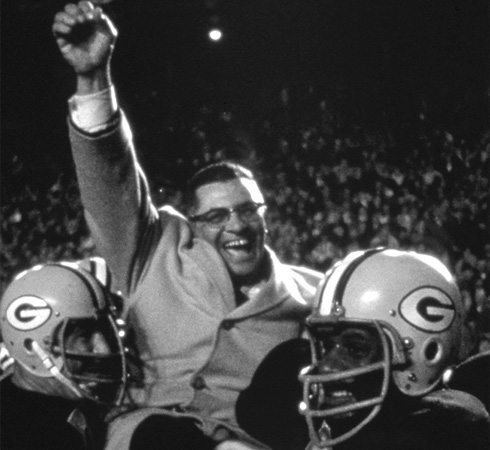A Coach for the Ages
A Coach for the Ages
Revered NFL coach Vince Lombardi was a Knight of Columbus who shaped sports history
2/7/2022

Editor’s Note: The following is an excerpt from The Knights of Columbus: An Illustrated History.
A man with strong Catholic faith and an unparalleled coaching career, Vincent “Vince” T. Lombardi is rightly one of the most revered coaches in NFL history. Within two years of taking over the struggling Green Bay Packers in 1959, he led them to two consecutive NFL championships, soon followed by a third championship, as well as victories in Super Bowls I and II. When he retired, Lombardi’s career coaching record stood at 105 wins, 36 losses and six ties.
But beyond his coaching expertise, he earned regard for his values, which he both lived on his own and instilled in his team, urging hard work and discipline for overcoming problems and achieving goals. Believing faith was important in every life, he considered daily Mass and Communion the source of his strength, and he often led his Catholic players to Mass. Lombardi joined Msgr. Basche Council 4505 in Green Bay, Wis., and later became a Fourth Degree Knight.
A believer in civil rights, Lombardi famously would not tolerate racial prejudice — and not just among his players. He made it clear to local shops and restaurants that if they refused to serve any of his players because of their skin color, they would be boycotted by the entire team. And players who displayed any act of prejudice would be dropped from the team.
When Lombardi died in 1970 at age 57, thousands attended his funeral at New York City’s St. Patrick’s Cathedral. Decades later, he remains one of the most notable sports figures of all time. Despite his success and the high regard in which he was held, Lombardi never lost sight of his purpose in life. This was perhaps best expressed by the following words, which he spoke to his players:
“After all the cheers have died down and the stadium is empty, after the headlines have been written, and after you are back in the quiet of your room and the championship ring has been placed on the dresser, and after all the pomp and fanfare have faded, the enduring thing that is left is the dedication to doing with our lives the very best we can to make the world a better place in which to live.”
